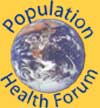 |
Population Health Forum Advocating for Action Toward a Healthier Society |
Sample Press Releases Sample 1. Announcing a speaker on a hierarchy and poor health topic UNIVERSITY OF WASHINGTON Date XXXX, 2003 FOR IMMEDIATE RELEASE Expert on disparities in international health to speak Nov. 14 Richard Wilkinson, an expert on the differences in health status from country to country, will speak about "Unhealthy Societies: The Politics of Human Social Needs" at 6 p.m. on Nov. 14, 2002, at the University of Washington's Kane Hall. Admission is free and open to the public. Wilkinson, a professor of social epidemiology at the University of Nottingham Medical School, England, has spent more than 25 years researching the link between social inequities and health in countries throughout the world. His books, including Mind the Gap: Hierarchies, Health and Human Evolution (2000), Unhealthy Societies (1996), and Social Determinants of Health (1999), have been published in translation in Japan, Brazil, the Netherlands, Germany, and Saudi Arabia. He, together with Michael Marmot, edited a primer on the social determinants of health, Solid Facts, for the World Health Organization in 1998. The United States spends more on health care than any other nation - in fact nearly half the world's total health care budget. Yet, the United States ranks 25th in the world for life expectancy, behind most other rich nations and a few poor ones. Why? According to research in social epidemiology, people die younger in societies where there is a large gap between the rich and poor, as exists in the United States. In countries with smaller gaps in income, like Japan and Sweden, the population enjoys longer life expectancies and better health. Relative poverty, or income inequalities within a population, is closely related to health in developed societies. Research by Wilkinson and his colleagues has shown that the relationship between social inequalities and a population's health is dynamic. As the gap between the rich and poor within a country shrinks, life expectancy and other measures of health improve. Conversely, as the gap widens, as has been the case in the United States over the past 30 years, the health of a population declines relative to other countries. Wilkinson asserts that wider income differences are associated with a more hostile and less hospitable social environment. He says less egalitarian societies tend to develop a "culture of inequality" which is more violent, less trusting, less socially cohesive, and more "macho." There are strong inverse relationships between measures of socioeconomic inequality and measures of quality of life. A society can achieve material success at the expense of social failure, Wilkinson says. Wilkinson says his analysis has fundamental implications for social policy. Rather than relying on more doctors and medical care to improve health, Wilkinson concludes we must tackle the corrosive effect of hierarchy and large income differences. Wilkinson is coming to the UW as a Walker-Ames Professor in the Graduate School. He was nominated by the School of Public Health and Community Medicine and the Evans School of Public Affairs. <END> |